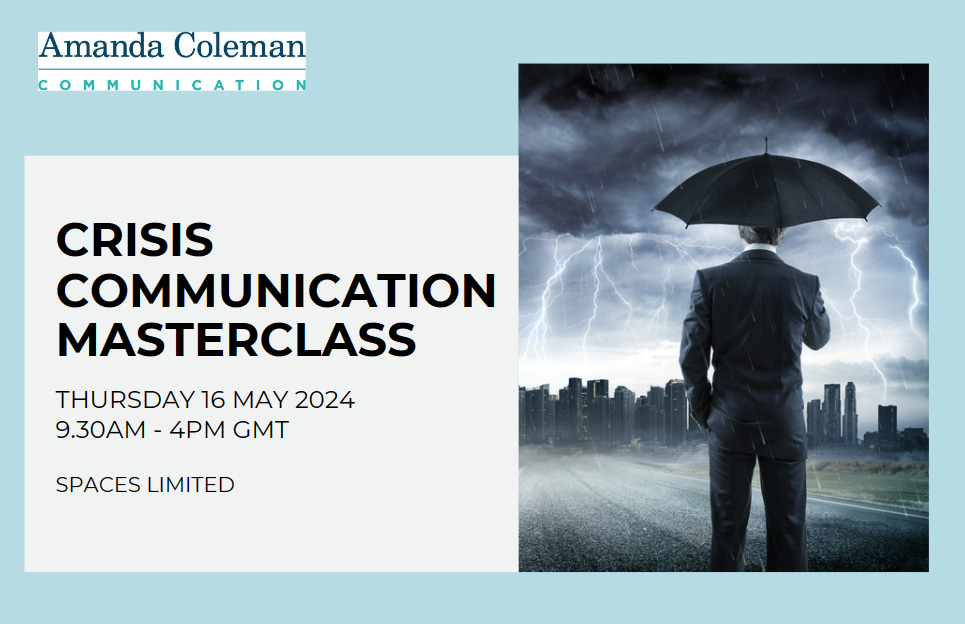Trust, care and thinking of others
In the aftermath of disasters there is always a statement that organisations are going to learn lessons from what happened. Sadly, this is rarely what actually happens and even if they do learn the information isn’t shared to others. It also fails to take account of the many factors that come into place ahead of an emergency.
Having read Peter Apps’ book Show Me The Bodies about the Grenfell fire tragedy and both what led up to it and happened afterwards. It is a reminder about the actions we take every day. What we say and what we do. Organisations can lose sight of what really matters to the work they are involved with.
Most of all the book highlighted to me how those in authorities had forgotten what really matters - people. It was a heart breaking read. I felt compelled to write a blog about the book which I recommend that every communicator reads. (Find it here)
People get busy. They rush at the ‘to do list’ and try to get things ticked off. But in doing this they often fail to recognise the human dimensions of what is happening. Who does that action impact on? And for public authorities have they taken account of what people feel about the situation? I mean have they really listened and understood what is being said.
Maintaining trust is tough. Building trust is even harder. It takes years to build that connection and confidence and just minutes to lose it. The situation affects everyone in the organisation. But for communicators there is an opportunity to keep reflecting back the views of the public, consumers, service users and staff. We have the information, the tools and the broad perspective to keep challenging and questioning, to keep putting those views forward, and to keep the focus on trust and people.
We should all be grateful for the work Peter Apps has done to bring the issues to the forefront. But more than that we should all be scrutinising our approaches to ensure that people are at the heart of everything we do.
Really learning the lessons
I was quite shocked to read some of the details in the latest report about the Maui wildfires that has been published. There was a significant criticism of the break down in communication between the emergency services and first responders. (Read the report here.) This was the same issue that was highlighted in the aftermath of the Manchester Arena terrorist attack almost seven years ago. It is time that agencies looked at all emergencies and ensured that changes are made whenever something happens.
It was also important to note that the emergency alerts could not be received because there was no cellular communication. Early warning systems need to be more sophisticated and to take account of the circumstances including a loss of power. When there is no social media, text messaging or media that people can access what do you do? Something all agencies charged with emergency response need to consider and take steps to resolve. It was why I wrote a document about powering communication when there is an outage. You can find it on my website here. We all need to review our plans and keep monitoring the issues affecting others to make necessary changes.
Inclusive Crisis Communication Matters
The importance of inclusivity in the emergency communication has long been highlighted by Amanda. In her books Crisis Communication Strategies and Everyday Communication Strategies the importance of communication that is accessible for all is included. An article by a research fellow has highlighted how people with disabilities often don’t get the emergency messages. Read more here.
In Brief:
Crisis expert Philippe Borremans recently provided a guide to hurricane preparedness in his Wag the Dog newsletter. Find out more about what is included in the guide here.
Amanda recently ran a Crisis Communication Bootcamp in Zurich for P World. It was a successful session and Amanda wants to thank everyone who joined the session and took part in the exercise.
Forbes recently published an article looking at crisis communication successes and pitfalls. Find out who is mentioned in the article here.
Diary Dates:
16 May 2024 - Crisis Communication Masterclass - Amanda is running her first full day comprehensive training on crisis communication. To book a space or for more information email office@amandacolemancomms.co.uk
21 May 2024 - Amanda will be in conversation with Professor Lucy Easthope at 6.30pm BST. For more information check out the details here.
23 May 2024 - Amanda will be running a full day training session on Managing an In-house Communication Team. The session run through the PRCA will cover how to lead as well as manage. Find out more here.
24 May 2024 - the SASIG webinar will take place at 11am and Amanda is guest chairing the session. Find out about the session here.


